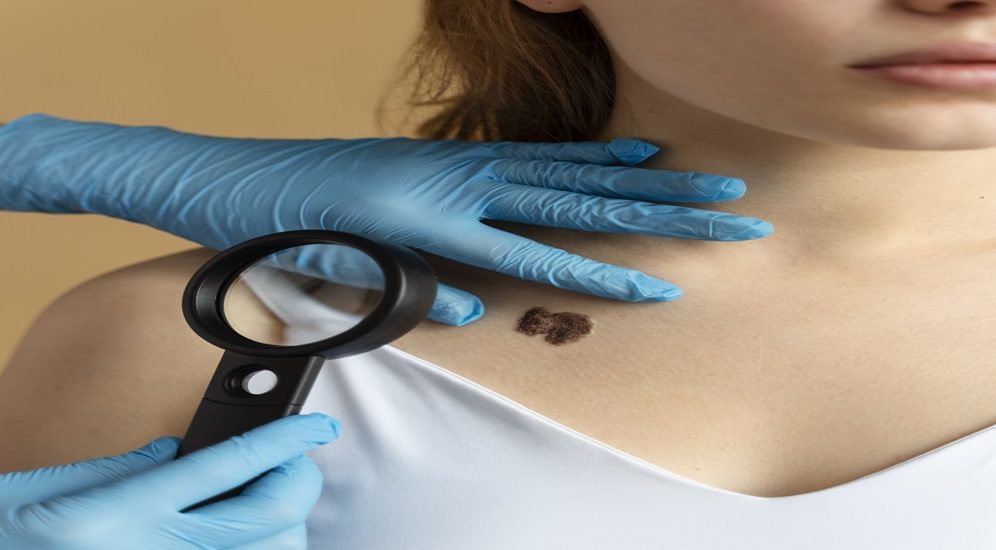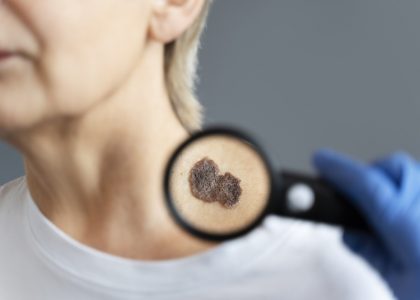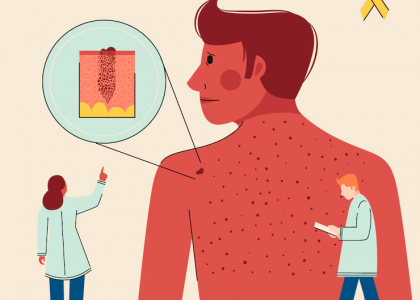Skin cancer is one of the most common cancers worldwide, with millions of people affected each year. Early detection and prompt treatment can significantly improve the prognosis, but understanding the different types of skin cancer and their treatments is essential to achieving this. At SunSkin Clinic, we are committed to providing patients with comprehensive skin diagnosis and treatment options. In this blog, we will explore skin cancer types, the importance of professional skin diagnosis, and expert advice on how to manage and prevent melanoma.
Types of Skin Cancer
Before delving into the details of prevention and treatment, it’s important to understand the different types of skin cancer. Skin cancer primarily falls into three categories:
- Basal Cell Carcinoma (BCC): The most common form of skin cancer, BCC typically arises in sun-exposed areas of the body, such as the face and neck. This type of cancer grows slowly and is unlikely to spread (metastasise) but can cause disfigurement if not treated promptly.
- Squamous Cell Carcinoma (SCC): SCC also forms in sun-exposed areas but grows more aggressively than BCC. Although SCC is less common, it carries a higher risk of spreading to other parts of the body if left untreated.
- Melanoma: The most dangerous form of skin cancer, melanoma can develop anywhere on the body, even in areas not typically exposed to the sun. It develops in the melanocytes, the cells responsible for pigment production in the skin, and is more likely to spread than other skin cancers. Early diagnosis is critical in improving survival rates.
The Importance of Skin Diagnosis and Treatment
Detecting skin cancer early can be the difference between a curable condition and one that becomes life-threatening. Regular skin checks, either at home or with a skin cancer clinic like SunSkin Clinic, are essential in catching skin cancer early. According to melanoma experts, regular self-examinations and professional skin cancer screenings can help detect abnormal growths or changes in moles, which are often the first signs of skin cancer.
Skin Diagnosis involves a detailed inspection of the skin by a trained dermatologist or skin cancer expert. Such doctors may use specialised tools, such as dermatoscopes, to closely examine the skin for signs of cancer. If suspicious areas are found, a biopsy may be performed to determine whether cancer cells are present.
Early detection often leads to more straightforward treatment options, which is why it’s crucial to be proactive in checking your skin. If caught in the early stages, many skin cancers can be treated successfully with minor surgery or other non-invasive methods. However, advanced skin cancers, particularly melanoma, may require more complex treatments, including chemotherapy, radiation, or immunotherapy.
Melanoma: Expert Advice for Beating It
Melanoma is considered the deadliest form of skin cancer, but the good news is that with expert advice and vigilance, it can be managed. Below are key pieces of advice from melanoma experts:
- Know the Warning Signs: The “ABCDE” rule is a widely recommended tool for identifying potential melanomas:
- Asymmetry: One half of the mole or spot is different from the other.
- Border: The edges are irregular, ragged, or blurred.
- Colour: The mole or spot has different shades of brown, black, or other colours.
- Diameter: It is larger than 6mm (about the size of a pencil eraser), although some melanomas can be smaller.
- Evolution: Any change in size, shape, or colour.
- Melanoma experts stress that any changes in the appearance of moles or spots should be checked by a professional as soon as possible. At SunSKin Clinic, we offer comprehensive skin cancer checks that can detect melanoma early, ensuring that treatment can begin without delay.
- Protect Your Skin: Prevention remains one of the best defences against melanoma. The primary cause of most skin cancers, including melanoma, is ultraviolet (UV) radiation from the sun or tanning beds. To reduce your risk:
- Use sunscreen with an SPF of at least 30 and broad-spectrum protection against both UVA and UVB rays.
- Wear protective clothing, such as wide-brimmed hats and sunglasses.
- Seek shade during the peak hours of sun exposure (typically 10 a.m. to 4 p.m.).
- Avoid tanning beds entirely, as the concentrated UV radiation can significantly increase your risk of skin cancer.
- Get Regular Skin Checks: Melanoma experts strongly recommend regular skin cancer checks with a dermatologist or at a specialised skin cancer clinic. A professional will be able to identify any potentially cancerous lesions and ensure that they are treated promptly. Annual skin checks are particularly important for individuals with a history of sun exposure, fair skin, or a family history of skin cancer.
- Treat Skin Cancer Early: If you have been diagnosed with skin cancer, especially melanoma, the earlier you begin treatment, the better your chances of recovery. Treatment options for melanoma can vary depending on the stage of cancer. For early-stage melanoma, surgical removal of the cancerous tissue is often sufficient. In more advanced cases, additional treatments, such as immunotherapy or radiation, may be necessary.
At SunSkin Clinic, our team of melanoma experts provides tailored treatment options to meet the individual needs of each patient. From early-stage diagnosis to advanced treatment, we offer comprehensive care for all types of skin cancer.
Conclusion
Skin cancer is a serious but preventable disease, and with the right approach, its impact can be mitigated. By following the expert advice outlined above – from understanding the types of skin cancer to regular skin checks and protecting your skin from UV damage – you can take proactive steps towards reducing your risk of developing skin cancer. At SunSkin Clinic, our commitment to providing top-tier skin diagnosis and treatment ensures that every patient receives the care they need.
If you have any concerns about your skin or would like to book a skin cancer check, don’t hesitate to reach out to our team of experts. Remember, early detection is key, and taking action today can protect your health for the future.






